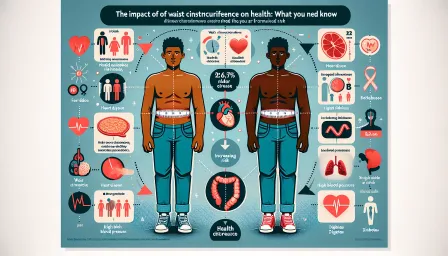Macrobiotic Diet for Cancer: Effective Strategies and Nutritional Benefits

Explore the benefits of a macrobiotic diet for cancer. Learn effective strategies and the science behind this nutritional approach.
The macrobiotic diet has garnered attention for its potential health benefits, particularly in relation to cancer. This article delves into effective strategies and nutritional benefits of the macrobiotic diet for cancer, helping you understand its role and efficacy. We aim to provide a clear, well-researched guide to help you make informed decisions about implementing this dietary approach.
Understanding the Macrobiotic Diet
What Is a Macrobiotic Diet?
The macrobiotic diet is a holistic nutritional approach that emphasizes whole grains, local and seasonal fruits, vegetables, and legumes. It also incorporates sea vegetables, and miso soup, and limits animal products, refined sugars, and processed foods. This diet is rooted in the principles of balance and harmony, inspired by traditional Eastern philosophies.
The Core Principles
The macrobiotic diet centers around the following principles:
- Yin and Yang Balance: Achieving harmony between opposing forces in foods and lifestyle practices.
- Emphasis on Whole Foods: Prioritizing natural, unprocessed foods that are close to their original state.
- Seasonality and Locality: Consuming foods that are in season and locally sourced.
- Avoidance of Extremes: Steering clear of excessively hot or cold foods, and overly pungent, sweet, or salty tastes.
Benefits of the Macrobiotic Diet for Cancer Patients
Anti-Inflammatory Properties
Inflammation is a key factor in the progression of cancer. The macrobiotic diet's emphasis on whole, plant-based foods and the exclusion of processed foods may help in reducing inflammation. Foods such as whole grains, vegetables, and legumes are high in phytonutrients and antioxidants, which help combat oxidative stress and inflammation.
Rich in Antioxidants
Antioxidants found in a macrobiotic diet can neutralize free radicals, unstable molecules that can damage cells and contribute to cancer development. Foods such as leafy greens, berries, and sea vegetables are particularly high in antioxidants.
Potential Weight Management
Maintaining a healthy weight is crucial for cancer prevention and recovery. The macrobiotic diet, with its focus on nutrient-dense and low-calorie foods, supports a balanced and sustainable approach to weight management.
Improved Digestive Health
Dietary fiber, abundant in whole grains, fruits, and vegetables, plays a critical role in digestive health. A high-fiber diet promotes regular bowel movements, supports gut microbiota, and may reduce the risk of colon cancer.
Effective Strategies for Implementing a Macrobiotic Diet
Start Gradually
Transitioning to a macrobiotic diet should be done gradually to allow your body to adjust. Begin by incorporating more whole grains and vegetables into your meals while slowly reducing the intake of processed and animal-based foods.
Focus on Whole Grains
Whole grains such as brown rice, quinoa, and barley should be the foundation of your diet. These grains provide essential nutrients and sustained energy while helping to stabilize blood sugar levels.
Balance Your Plate
A typical macrobiotic meal includes a variety of food groups. Aim for a balance of whole grains, vegetables, legumes, and a small portion of fermented foods. For example, a meal could include brown rice, steamed broccoli, miso soup, and a small serving of kimchi.
Incorporate Sea Vegetables
Sea vegetables like nori, kombu, and wakame are unique to the macrobiotic diet. They are rich in minerals such as iodine, which is essential for thyroid health. Add dried seaweed to soups and salads to enhance nutritional value.
Limit Refined Sugars and Processed Foods
Avoid refined sugars, artificial sweeteners, and processed foods. These can negatively impact your body's balance and contribute to inflammation. Natural sweeteners like brown rice syrup or barley malt can be used sparingly.
Scientific Evidence on the Macrobiotic Diet and Cancer
Clinical Studies and Research
Clinical studies examining the macrobiotic diet's impact on cancer have shown promising results. Some studies suggest that this diet can improve the quality of life for cancer patients and may help in slowing disease progression. However, it is crucial to note that the macrobiotic diet is not a standalone treatment for cancer, but rather a complementary approach.
Case Studies
Numerous anecdotal reports and case studies highlight positive outcomes for individuals adopting a macrobiotic diet during cancer treatment. These reports often emphasize improvements in energy levels, digestion, and overall well-being.
Consultation and Personalization
Work with Healthcare Professionals
Before making significant dietary changes, it is essential to consult with healthcare professionals. This includes oncologists, dietitians, and nutritionists who can provide personalized advice based on your specific health needs and treatment plan.
Personalization is Key
Every cancer patient's dietary needs are unique. A one-size-fits-all approach does not apply here. Customizing the macrobiotic diet to fit individual health conditions, preferences, and lifestyle factors is critical for achieving the best outcomes.
Conclusion
The macrobiotic diet offers numerous potential benefits for cancer patients, ranging from anti-inflammatory and antioxidant properties to improved digestive health and weight management. However, it should be considered a complementary approach rather than a sole treatment modality. By working closely with healthcare professionals and personalizing the diet to suit individual needs, cancer patients can potentially enhance their quality of life and support their overall health outcomes.



























